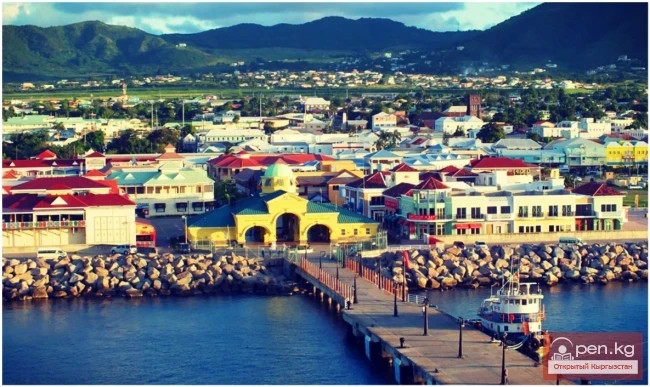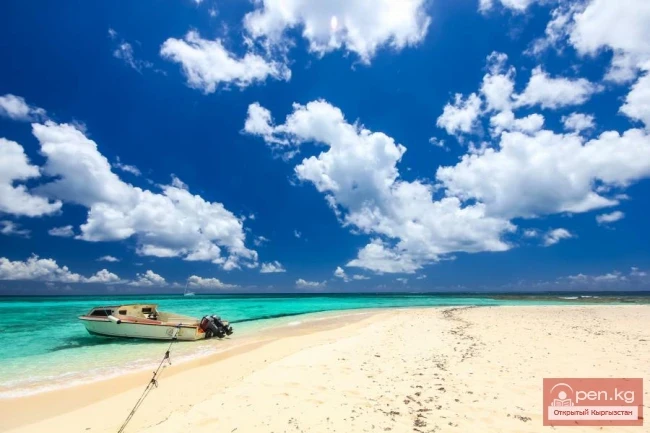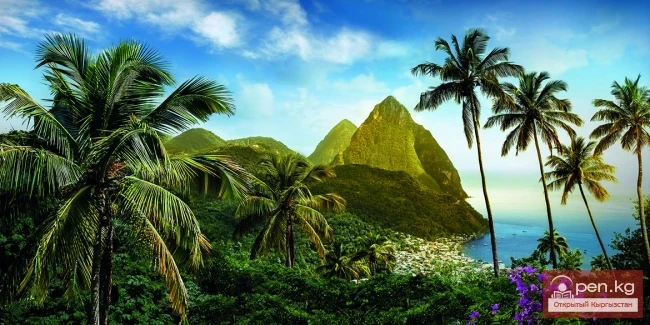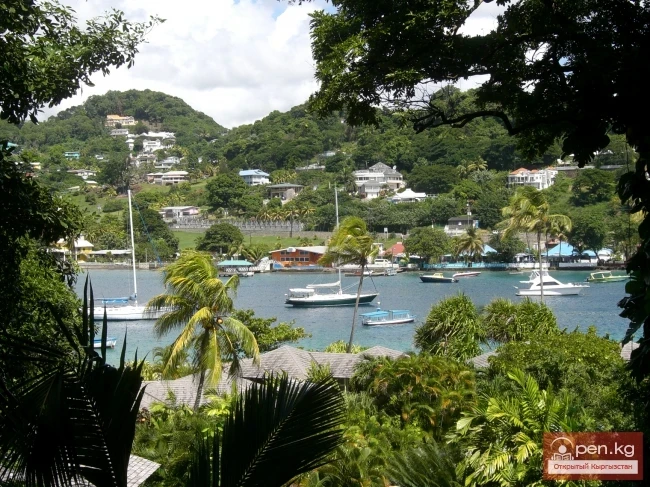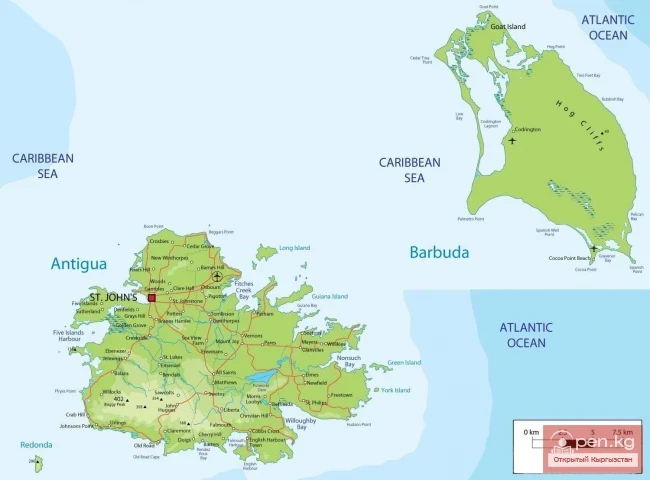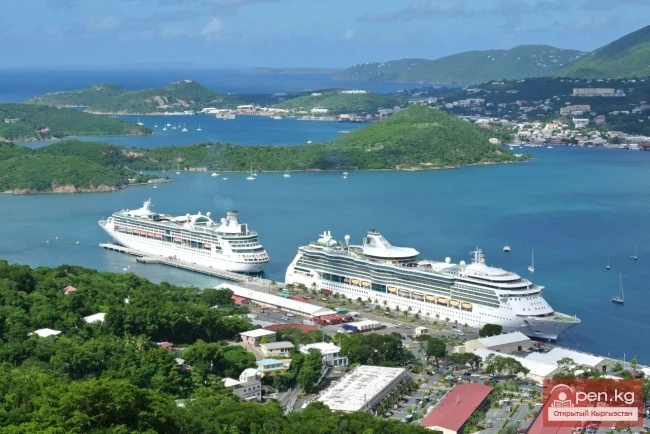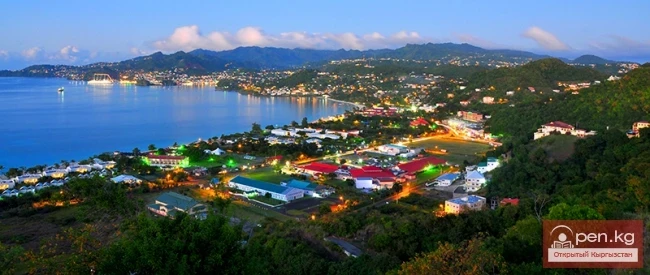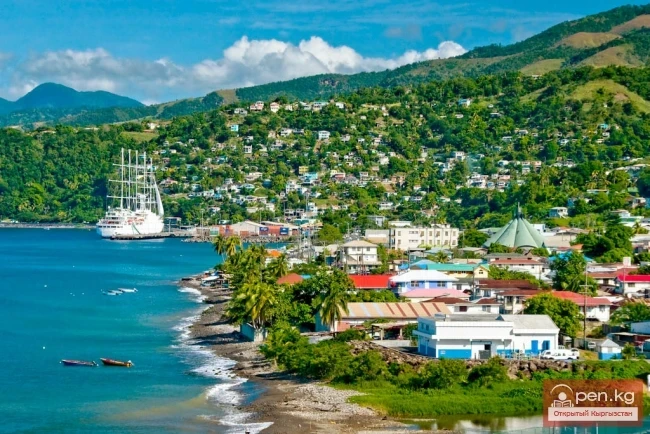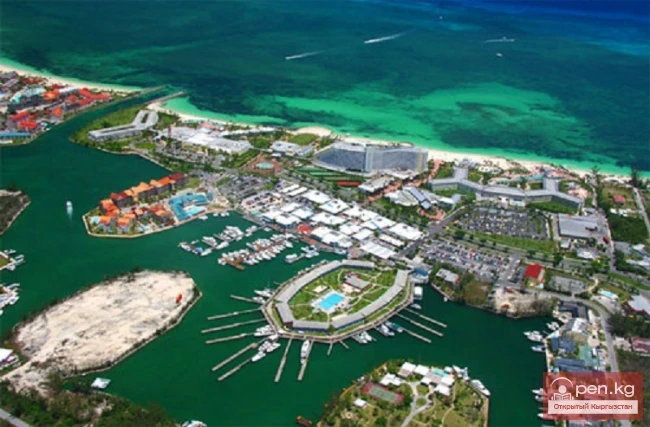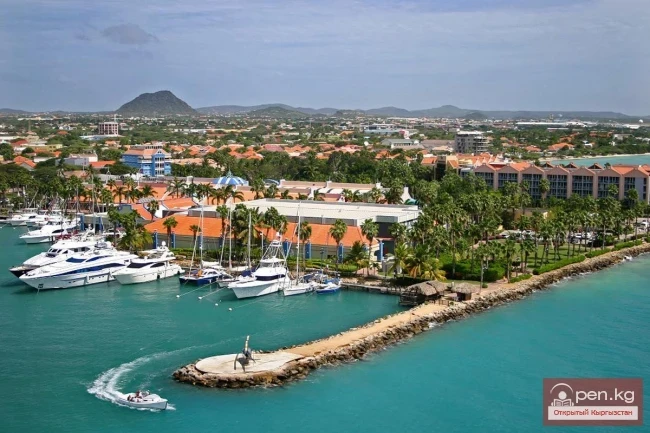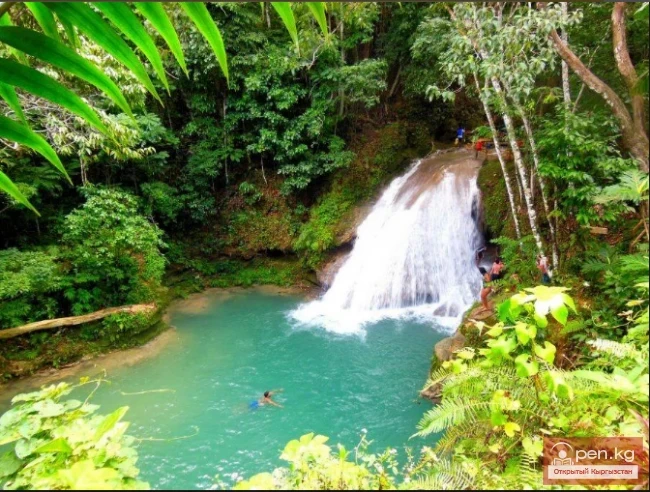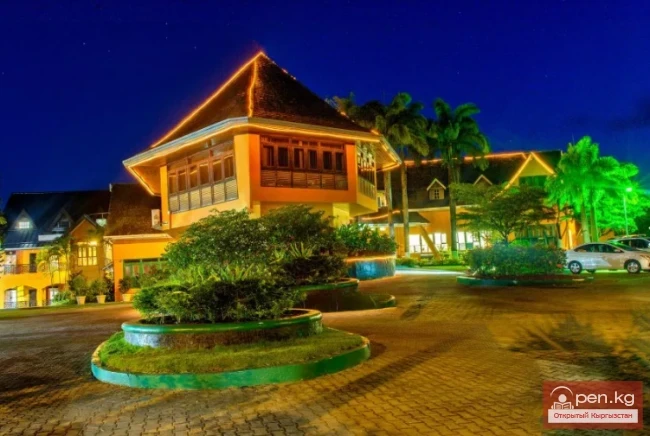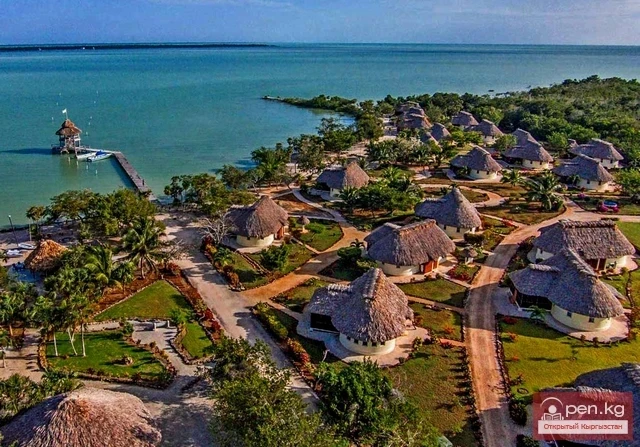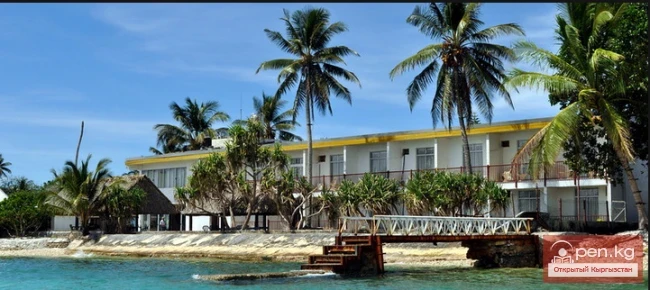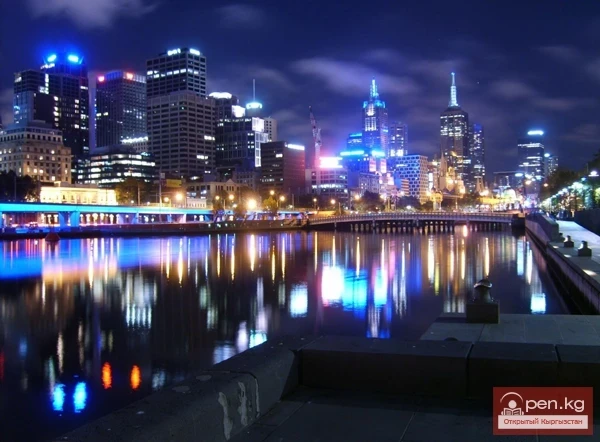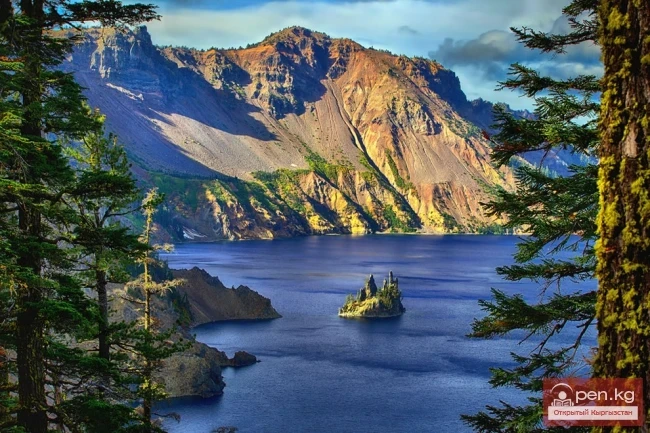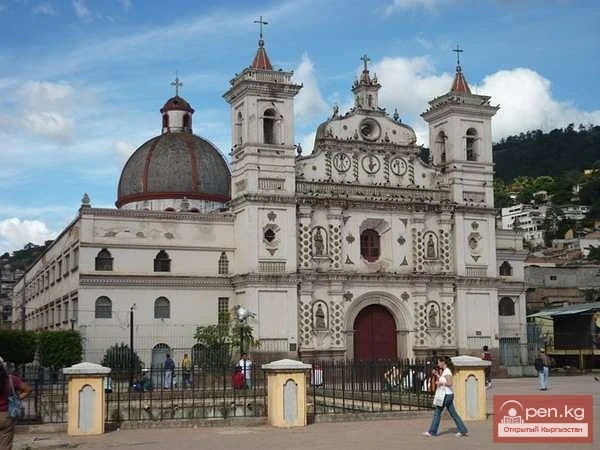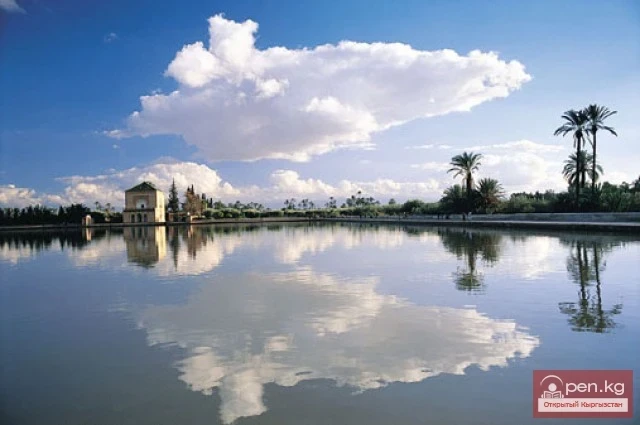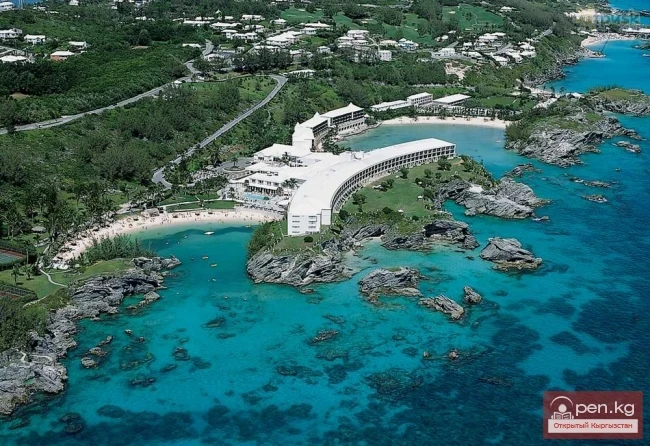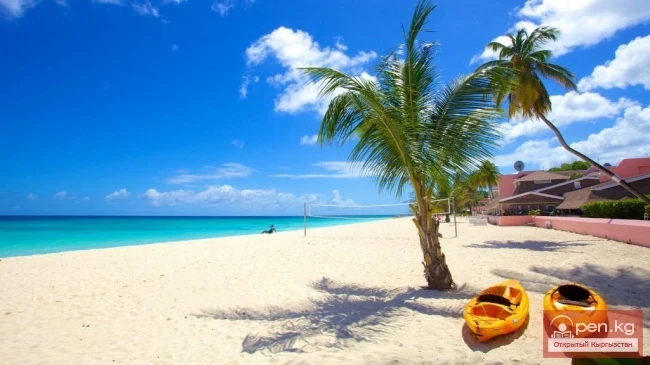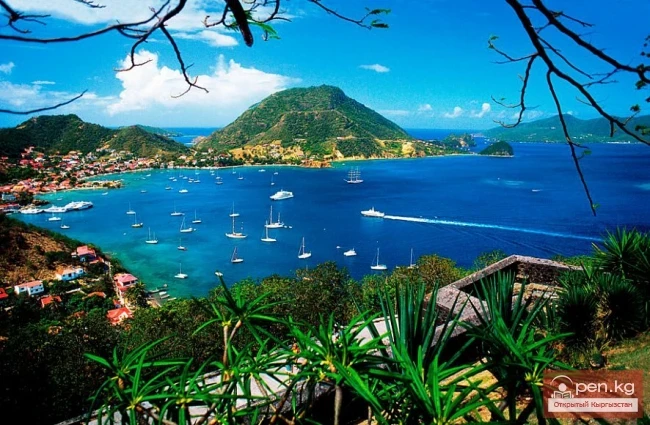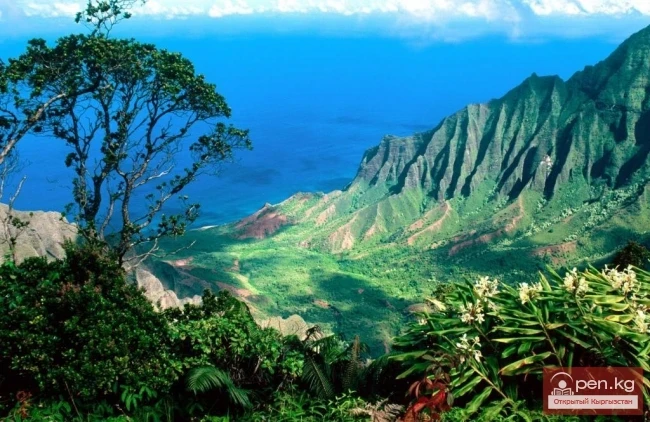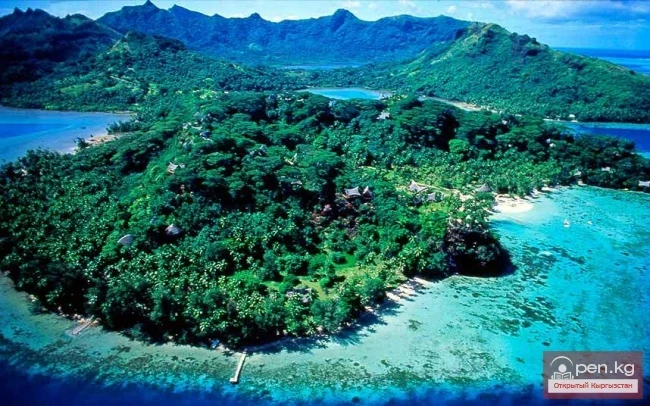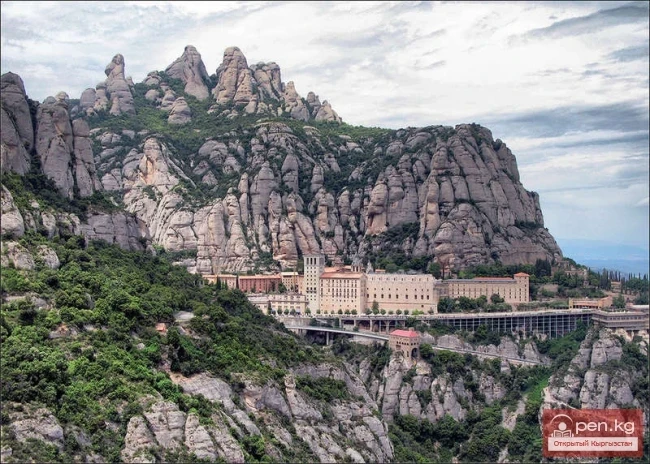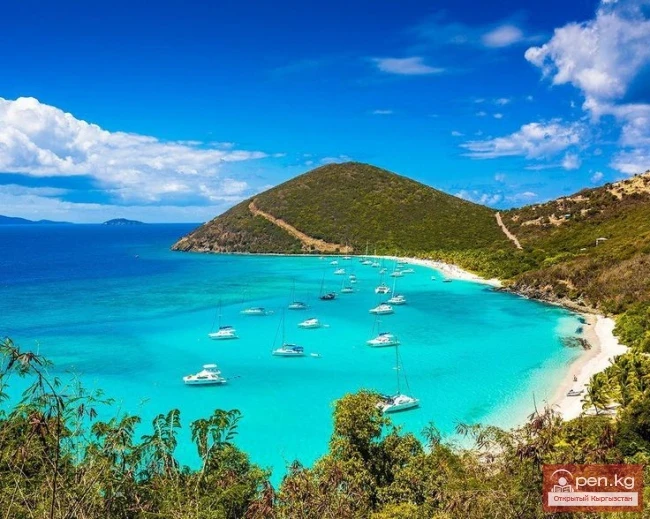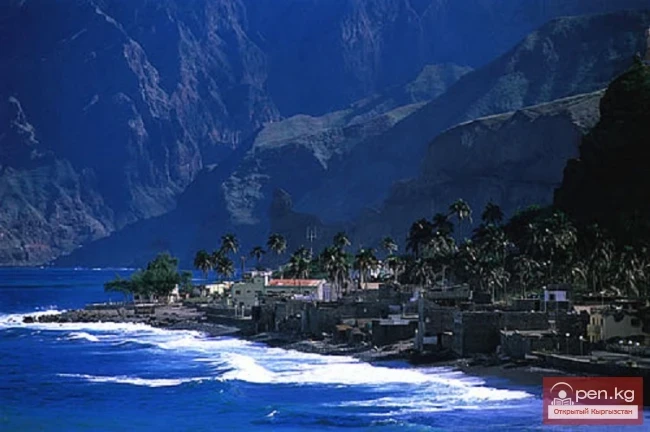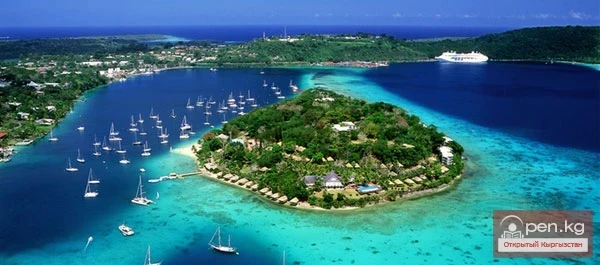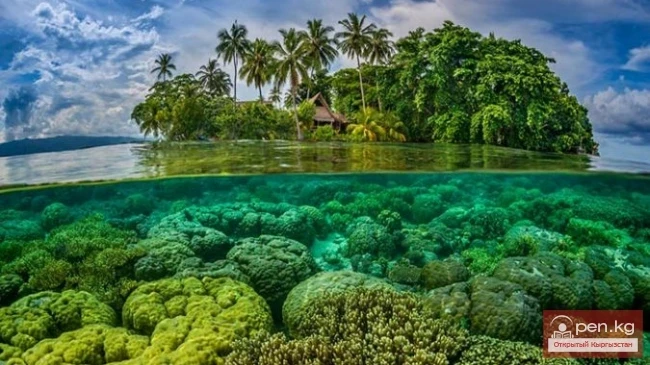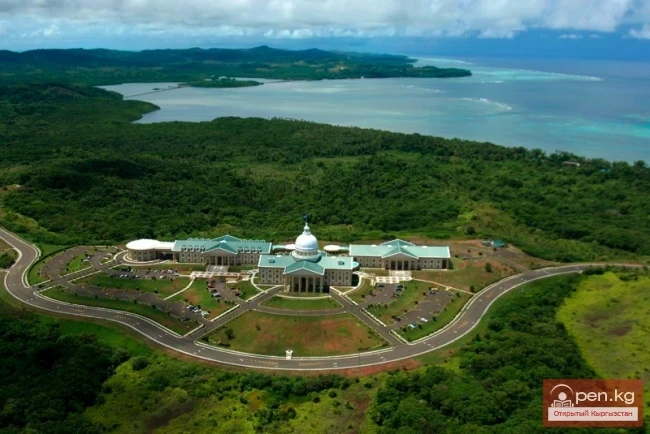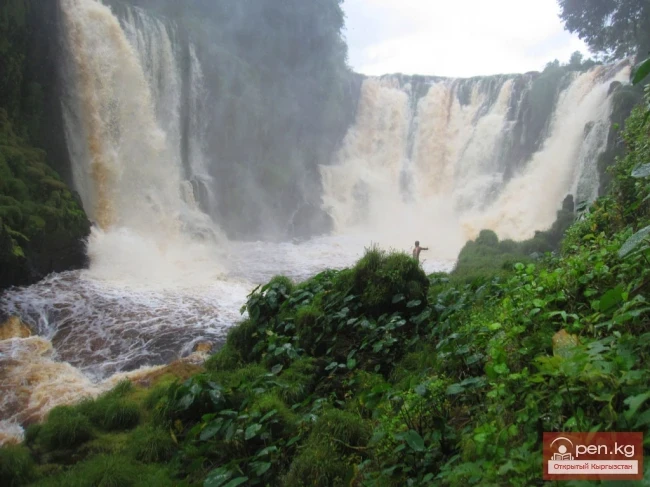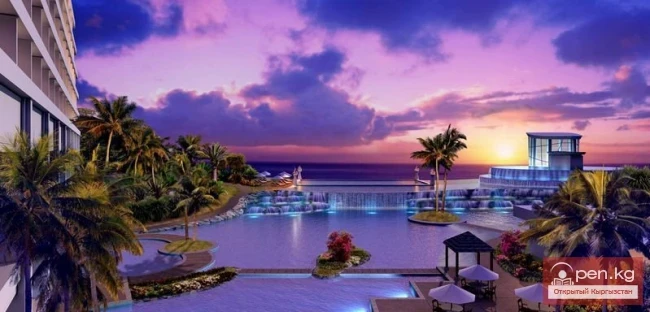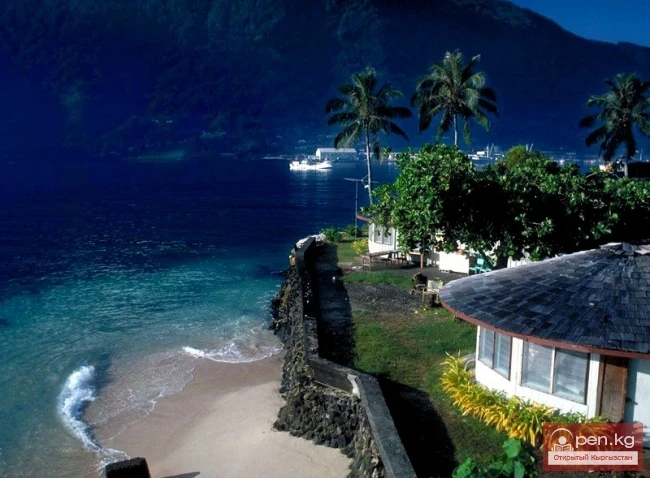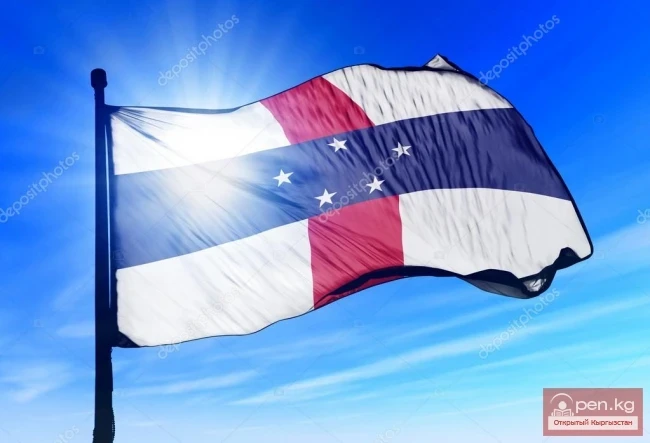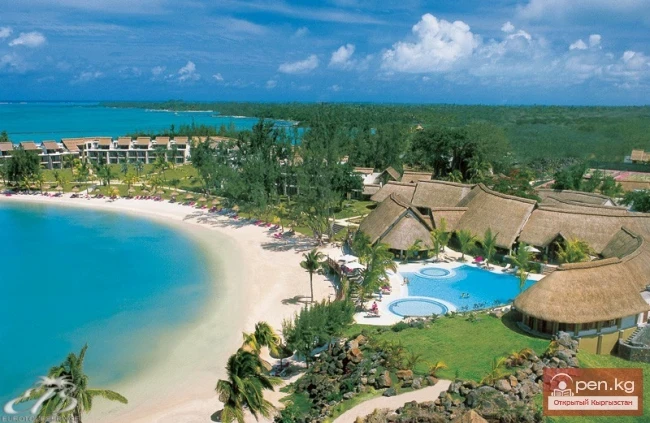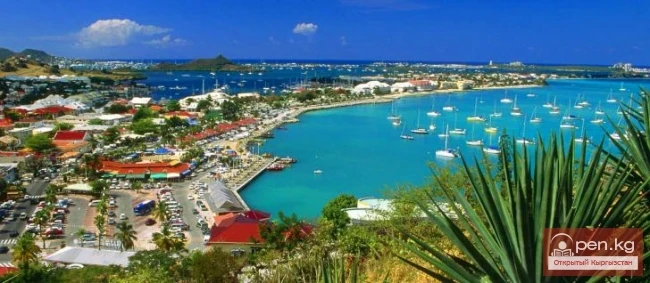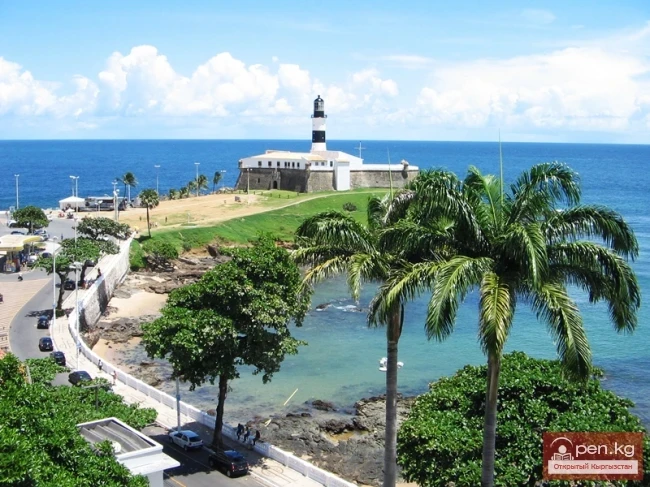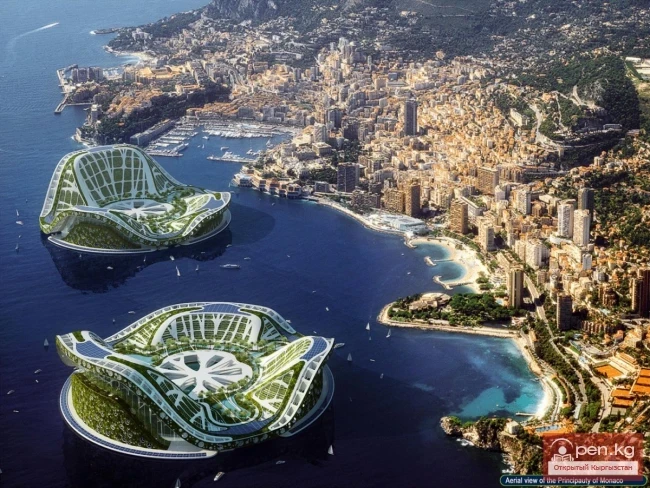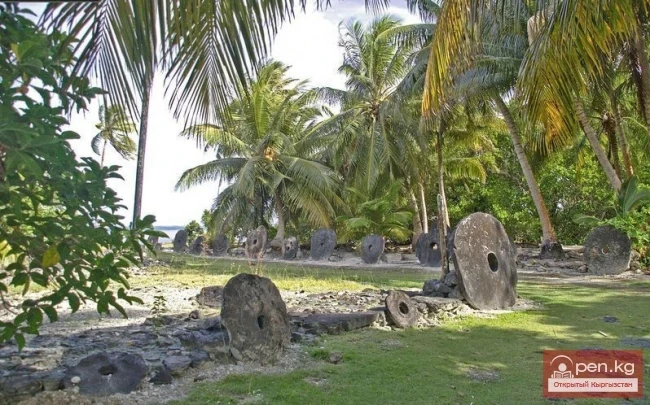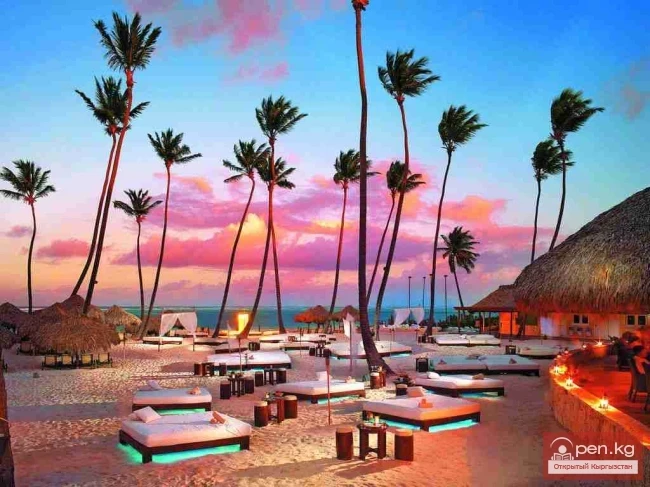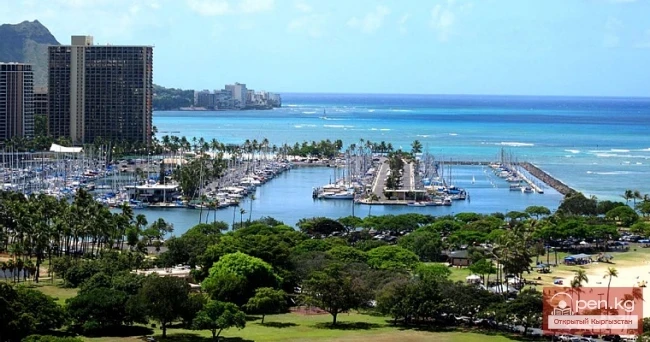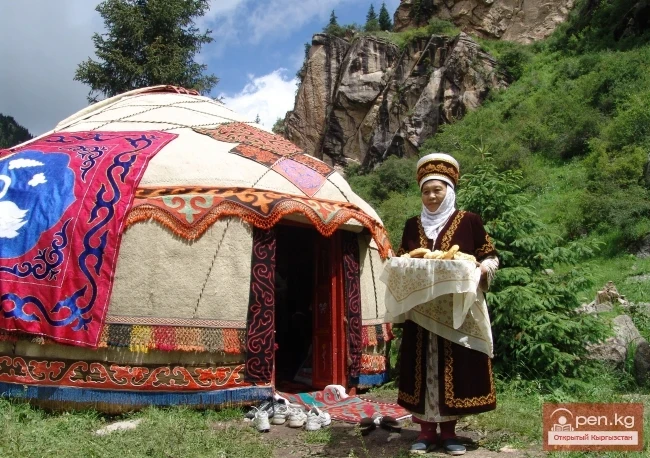SAINT KITTS AND NEVIS. Federation of Saint Kitts and Nevis
A state on the islands of Saint Kitts (also known as Saint Christopher) and Nevis, which are part of the Lesser Antilles in the Caribbean Sea, between North and South America. Area - 261 km². Capital - Basseterre (20,000) on the island of Saint Kitts. Administrative division - 14 districts. Population - 39,000 (including Nevis - 9,000), 86% of African descent. Official language - English. Dominant religion - Protestant (Anglicanism and Methodism). Currency - Eastern Caribbean dollar = 100 cents.
Diplomatic relations with the Russian Federation were established on September 29, 2003.
National holiday - September 19 - Independence Day (1983).
The Federation of Saint Kitts and Nevis is an independent state within the Commonwealth, headed by Great Britain.
According to the constitution (1982), the head of state is the Queen of Great Britain, represented by a Governor-General (since 1996 - K. M. Sebastian). The highest legislative body is the unicameral National Assembly, consisting of 11 members elected by the population for 5 years (8 from Saint Kitts and 3 from Nevis), and 3 appointed members (in the last elections on September 25, 2004, the Labour Party won). The executive power is exercised by the government, headed by the Prime Minister (since 1995 - D. Douglas). The residents of Nevis elect their governing body - the Assembly of Nevis and enjoy autonomy, as well as the right for Nevis to secede from the Federation.
Political parties: The Labour Party - founded in 1932, in power since 1995 (7 seats in parliament). The opposition consists of the People's Action Movement (founded in 1965), leader - L. Grant; Nevis Reform Party (founded in 1970 on the island of Nevis), leader - D. Parry. The Concerned Citizens Movement (operating on the island of Nevis), leader - V. Aimory.
The main trade union - the Saint Kitts and Nevis Trade and Labour Union - was established in 1940 and is a member of the ICFTU and the WFTU.
The islands were discovered in 1493 by Christopher Columbus, who named it "San Cristóbal" (English - "Saint Christopher"). In 1623, an English settlement was established on Saint Kitts (the first in the West Indies), and in 1624, a French settlement was established. The local indigenous population was forcibly displaced from Saint Kitts by 1629. For the English and French, this island served as a base for the colonization of other islands in the West Indies, which is why it was called the "cradle of the Caribbean." From 1625, the islands were a colony of Great Britain (although Nevis was settled by the English only in 1628, and Saint Kitts was under French control from 1664-89 and 1782-83, finally recognized as British territory only by the Treaty of Versailles in 1783). From 1871 to 1956, Saint Kitts and Nevis were part of the Leeward Islands colony, and from 1958 to 1962, they were part of the West Indies Federation. Since September 19, 1983, Saint Kitts and Nevis have been an independent state. There are separatist sentiments on the island of Nevis. In a referendum held in 1998, 61.7% of the island's population voted for secession from the federation (according to the constitution, a two-thirds majority is required for separation).
Member of the UN (since 1983), OAS (since 1984), Caribbean Community, and other international and regional organizations.
The economy is primarily based on agriculture and foreign tourism. GDP volume - 339 million USD (2002). Agriculture accounts for 10% of GDP, industry - over 20%, and services (including tourism) - more than 50%. The islands are visited by up to 250,000 tourists annually.
The area of arable land is 8,000 hectares. Approximately 70% of the cultivated land is occupied by sugar cane, the leading agricultural crop on Saint Kitts. 7% of the population is employed in the sugar industry. On Nevis, cotton, coconut palms, and pineapples are grown. The population traditionally engages in fishing. Agriculture does not meet even half of the country's food needs.
The manufacturing industry is represented by small enterprises producing raw sugar, cotton and coconut oil, alcoholic beverages, textiles, footwear, pharmaceuticals, and also assembling electrical equipment. In recent years, electronics production has been developing.
The country's leadership, headed by Prime Minister D. Douglas, is implementing an economic policy to promote tourism, small business, and farming, and to liberalize the tax system.
Exports - 70 million USD (sugar and molasses, cotton, as well as cotton and coconut oil, beverages, tobacco), imports - 195 million (machinery, equipment, food, chemicals, petroleum products). Main trading partners: USA (37% of import value, 62% of export), Great Britain, Trinidad and Tobago, Canada.
Consumer price growth - 2% (2001). Unemployment - 4.5% of the economically active population. Literacy rate is 98%.
The length of the road network is 320 km. On Saint Kitts, there is a narrow-gauge railway (50 km) serving sugar cane plantations. Main ports - Basseterre (on Saint Kitts) and Charlestown (on Nevis). 3 km from Basseterre is the Golden Rock International Airport.
There is a weekly newspaper "Democrat" (3,000 copies) and a bi-weekly newspaper "Labour Spokesman" (6,000 copies).
There are state radio and television stations.
